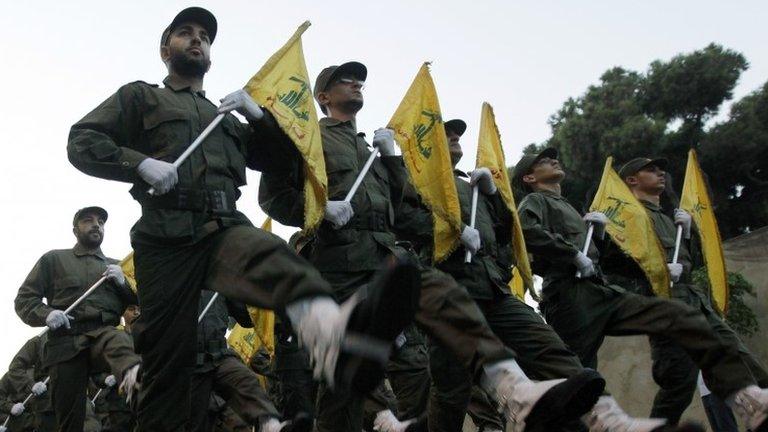Iran-Saudi tensions simmer in Lebanon
- Published
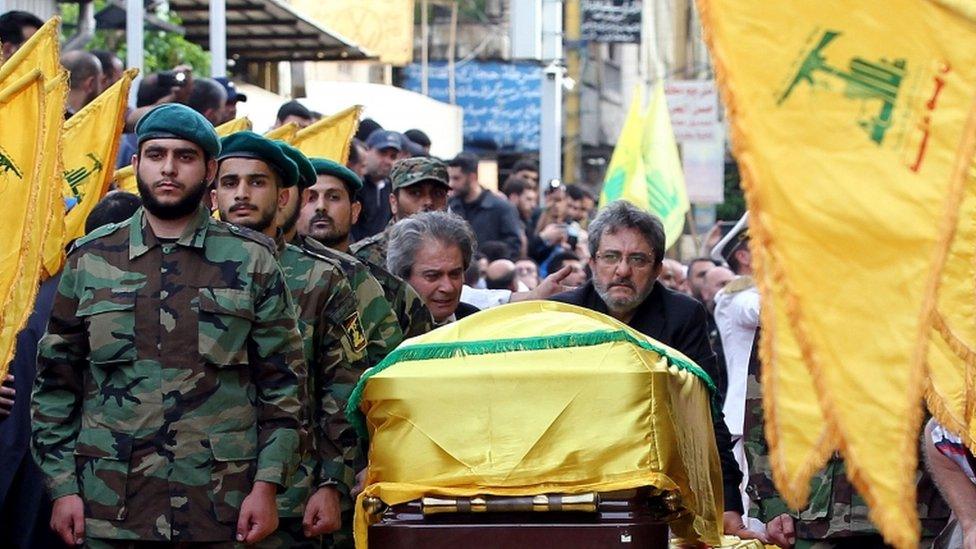
Mustafa Badreddine was widely mourned in Lebanon
When thousands of mourners gathered in the southern suburbs of Beirut last week to bury top Hezbollah commander Mustafa Badreddine, who was killed in Syria, they repeatedly chanted "Death to al Saud".
The Shia militant group backed by Iran and fighting alongside Bashar al-Assad's forces in Syria, said Badreddine's death "was the result of artillery bombardment carried out by takfiri groups in the area." Takfiri is a specific term to describe Muslims who believe society has reverted to a state of non-belief but in today's Middle East it has also become short hand for Sunni jihadist groups.
The chants against the Saudi royal family appeared to strike a discordant note, coming from Hezbollah, a group that came into being in the 1980s to fight Israel's occupation of south Lebanon and remains officially dedicated to the goal of "liberating Palestine" - though it is now deeply embroiled in the war in Syria.
But the mourners in Beirut were echoing a similar chant in front of the Saudi embassy in Tehran in January when angry protestors stormed the building after Riyadh carried out a death sentence against a Saudi Shia cleric, Nimr al-Nimr.
The Saudi-US-Iran triangle: How crisis reflects deeply fractured Middle East
Great rivalry explained: Why don't Iran and Saudi Arabia get along?
The gulf between them: Understanding the Saudi-Iran dispute
Sunnis and Shia: Islam's ancient schism
Spiralling tensions: Why crisis is "most dangerous for decades"
On the streets of Beirut, where Hezbollah members and supporters more commonly raise their fists to the slogan of "Death to Israel", the threats against the Saudi royal family were a stark reminder of the rapidly changing landscape in the region and the escalating proxy wars between Tehran and Saudi Arabia, from Syria to Yemen.
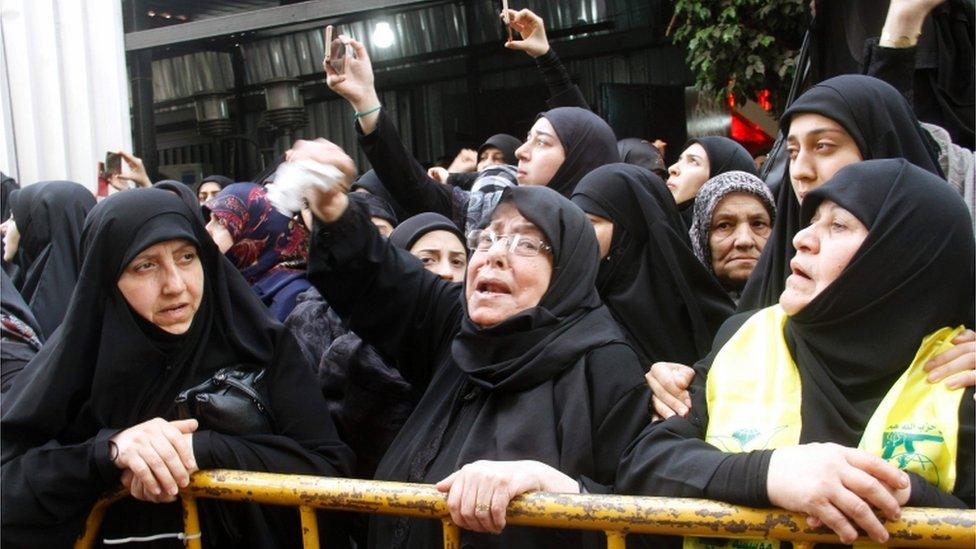
There was anger among some mourners at the Badreddine funeral
In Lebanon, the rivalry has been simmering more quietly for years, in ways that are just as significant and came to a head in recent months.
To counter Hezbollah's power and Iran's influence in Lebanon, Saudi Arabia has long backed a variety of politicians and institutions in Lebanon, the most prominent being the Hariris: former Prime Minister Saad Hariri and his father, Rafik, also a former prime minister who built his fortune in Saudi Arabia and was killed in a massive truck bomb in 2005.
The killing was blamed on Syria at the time. An international tribunal later charged Badreddine, the Hezbollah commander, in absentia for masterminding the assassination.
Chipping away at state
In hindsight, the killing now looks like the moment when Iran's allies began their push against Saudi influence in Lebanon, but the kingdom was slow to recognize that, as Hezbollah chipped away at Lebanon's state institutions.
After the storming of the Saudi embassy in Tehran in January, Riyadh convened an Arab League meeting in Cairo where members unanimously condemned the mob attack.
Footage posted on social media appears to show an attack by protesters on the Saudi embassy in Tehran, Iran
Lebanon, whose foreign minister is an ally of Hezbollah, abstained. The snub infuriated Riyadh, which proceeded to halt a $3bn package of aid to the Lebanese army.
Saudi funds that had been pouring into local institutions, including the media, dwindled.
Gulf countries threatened to expel any Lebanese with ties to Hezbollah - there are some 400,000 Lebanese, mostly highly skilled professionals, working in the Gulf and sending $2.5bn back home per year.

Hezbollah:
Hezbollah - the Party of God - is a Shia Islamist political, military and social organisation that wields considerable power in Lebanon
Emerged with the help of Iran during the Israeli occupation of Lebanon in the early 1980s, though its ideological roots stretch back to the Shia Islamic revival in Lebanon in the 1960s and 1970s
After Israel withdrew in 2000, Hezbollah resisted pressure to disarm and continued to strengthen its military wing, the Islamic Resistance. In some ways, its capabilities now exceed those of the Lebanese army, its considerable firepower used against Israel in the 2006 war
The group also gradually became a key power broker in Lebanon's political system, and has effectively gained veto power in the cabinet
Hezbollah has been accused of carrying out a string of bombings and plots against Jewish and Israeli targets and is designated a terrorist organisation by Western states, Israel, Gulf Arab countries and the Arab League
Some Lebanese consider Hezbollah a threat to the country's stability, but it is enduringly popular within the Shia community

"I don't think the Saudis have given up on Lebanon, but they reached a point of wondering why they should continue pouring money into a place where Iran continues to have more influence than they do," said Mohamad Bazzi, a professor at New York University currently writing a book about the proxy wars between Iran and Saudi Arabia.
Mr Bazzi said it was a risky policy that could leave the Saudis with no allies in Lebanon. "Of course, part of this is that money alone can't shape regional policy and alliances," he added.
Critics of the Saudi approach say the crisis this year was the culmination of years of mismanagement of the Lebanon portfolio by the Saudis themselves, whose checkbook diplomacy has rarely had a strategic vision and is now deeply curtailed by the drop in oil prices.
Hanin Ghaddar, the managing editor of the NOW Lebanon news site, said the move was also part of a regional reordering of the Saudi focus. Saudi Arabia accuses Houthi rebels in Yemen of being backed by Iran and has accused Hezbollah of training the rebels.
"Saudi Arabia understood that Hezbollah is not just a Lebanese faction anymore but a regional actor and there is no point using Lebanese allies to fight this regional war," said Ms Ghaddar.
Fabric of society
Gulf officials have said they would like to see the Lebanese take a stand against Hezbollah, a tall order not only because the group is heavily armed, but also because it is part of the fabric of Lebanese society.
Ms Ghaddar says Hezbollah can only be defeated from the inside, by its own community. But while there have been murmurs of dissent there have been no successful efforts to help build up a Shia civil society. Sunni politicians in the country have also mostly failed to reach out to the community.
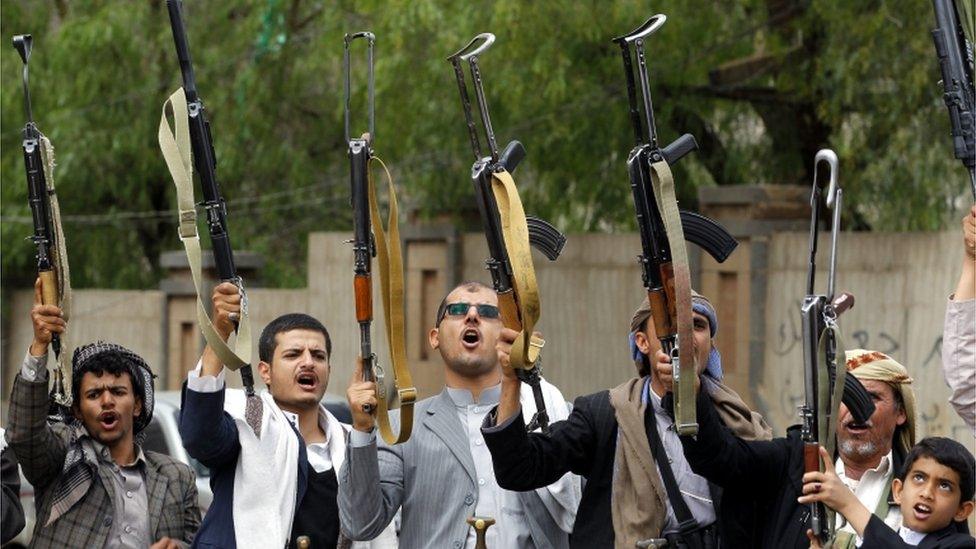
Saudi Arabia accuses Hezbollah of training Houthi rebels in Yemen
Caught between these two regional poles for over a decade, the ebb and flow of tensions has roiled the country and its politics repeatedly.
One Lebanese businessman who preferred to remain anonymous said it was perhaps better to finally be just in one camp.
"At least we're no longer being torn in different directions, it could bring more stability."
There has also been a rush of businessmen heading to Iran to explore investment possibilities there after the nuclear agreement was signed last year.
"We helped build Saudi Arabia, and the Gulf, now Iran is the new El Dorado," said the businessman.
The Lebanese may be adapting to the new order of things, but crises still loom on the horizon.
Hezbollah's threatened Lebanese banks which abide by new US sanctions forbidding dealings with any individuals affiliated with the group - this would include salaried members of parliament who are members of the party.
And if Saudi Arabia is now more focused on countering Iranian influence in Syria and Yemen, Ms Ghaddar warned that Riyadh may find its attention diverted back to Lebanon should Hezbollah drawdown from Syria, returning its fighters home, whenever the Syrian conflict ends.
- Published10 January 2016
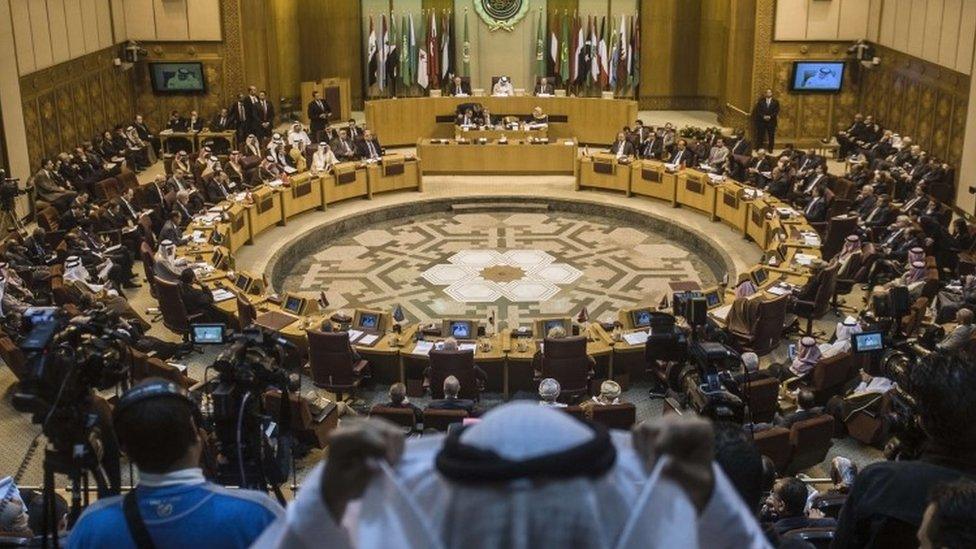
- Published10 January 2016
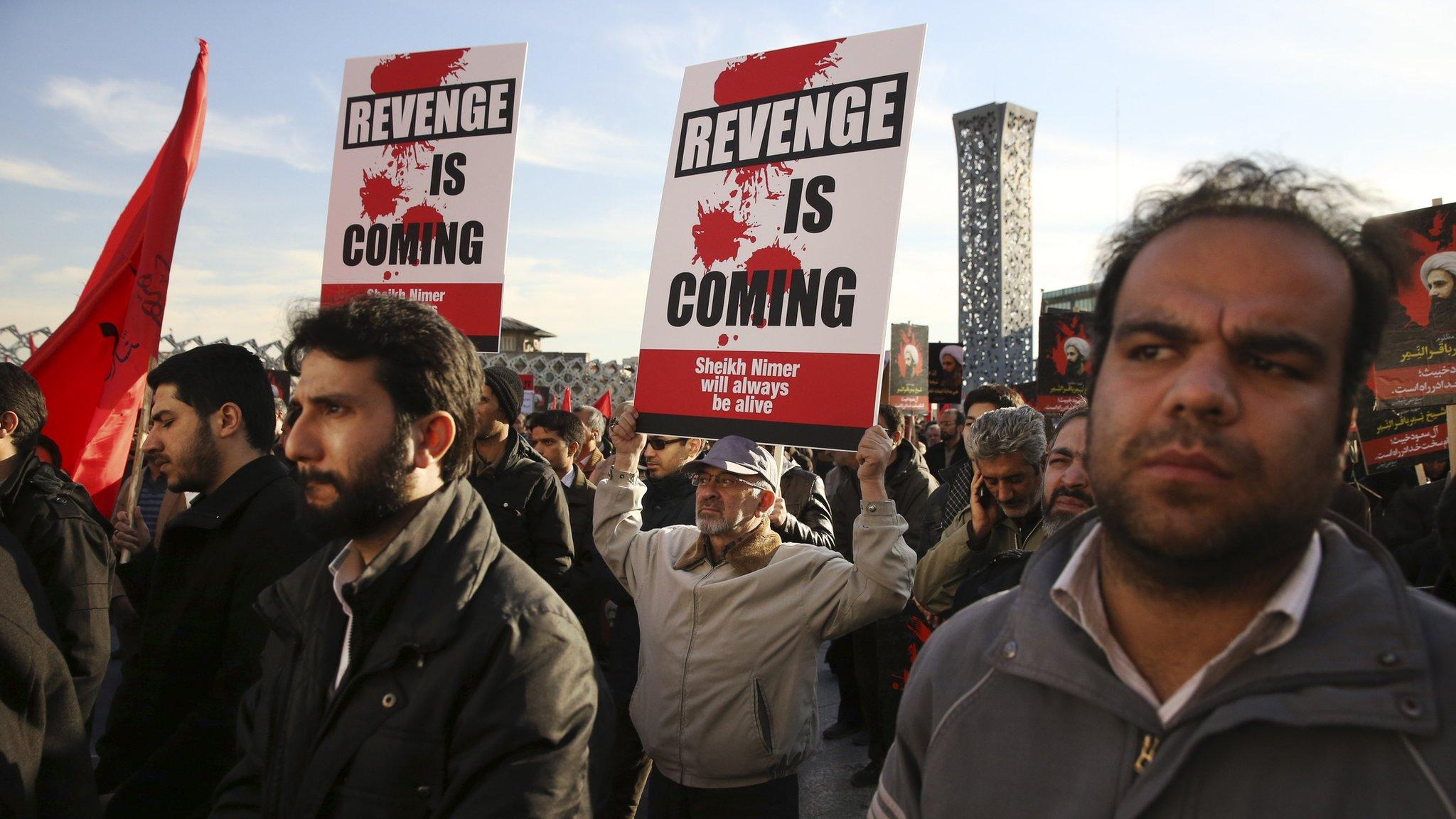
- Published19 February 2016
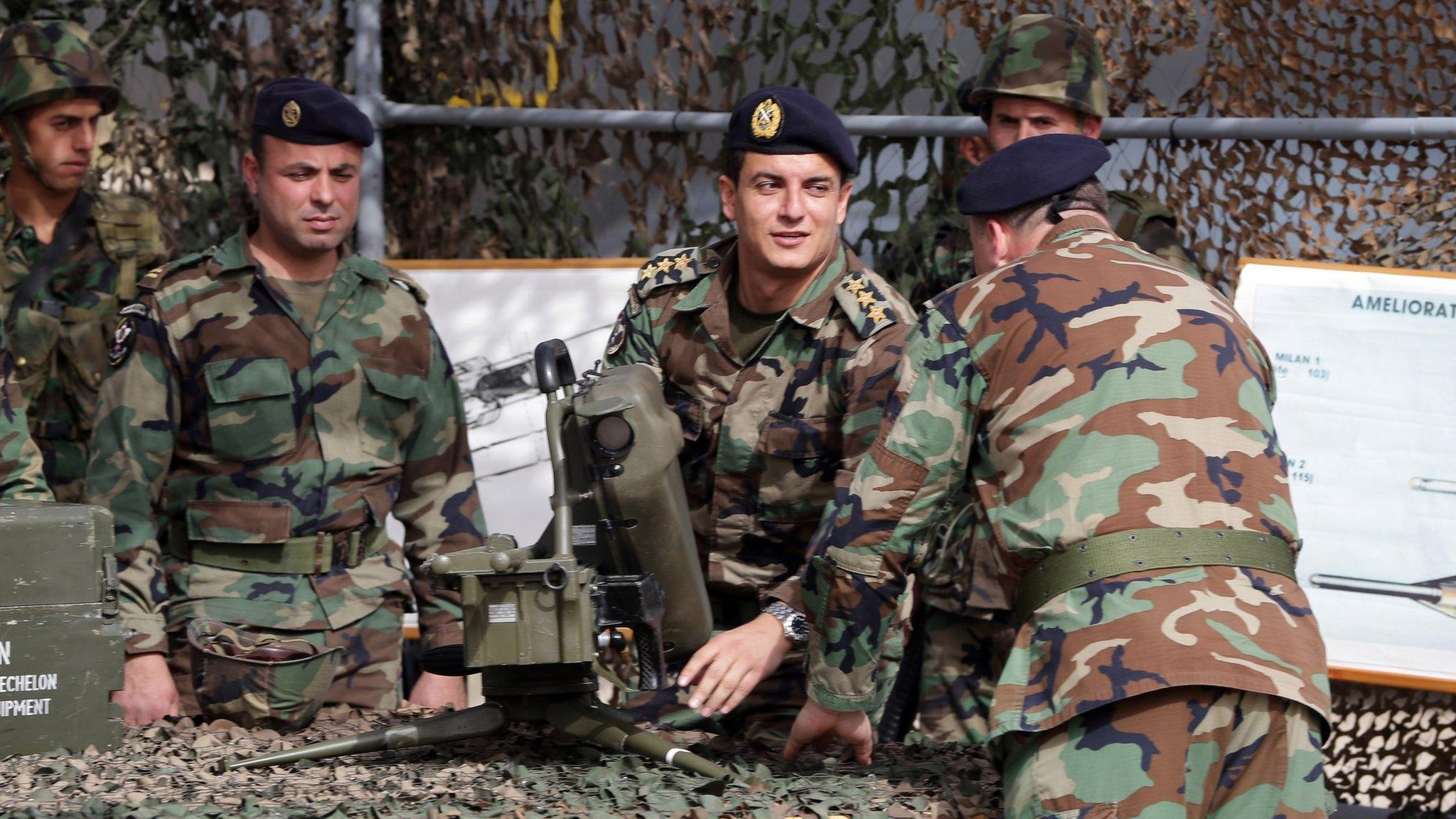
- Published15 March 2016
